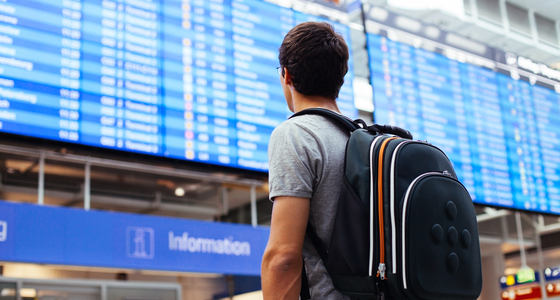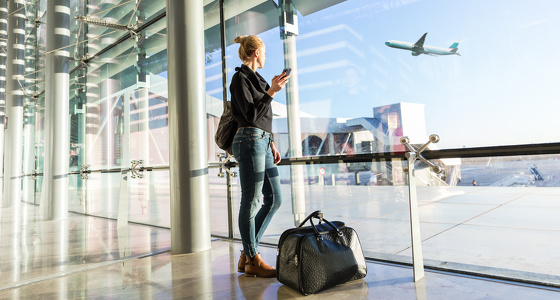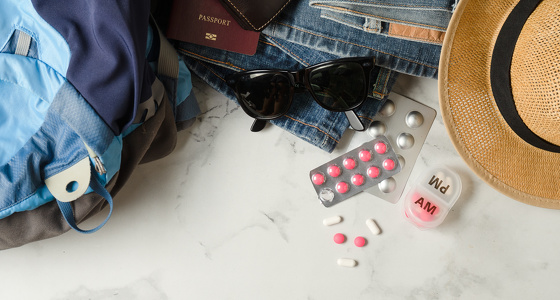Find this article useful?
Why not sign up to our mailing list and receive regular articles and tips about IBD to your inbox.
Travelling to other countries with inflammatory bowel disease (IBD) can be daunting, but with the right planning you should be able to enjoy holidays and longer trips abroad.
Some of the things you need to consider before taking a trip include:
Having Crohn’s disease and ulcerative colitis can cause the cost of travel insurance to be higher - in some cases much higher. But, having travel insurance to cover your IBD is really important, especially if your health is unstable and you are experiencing regular flares. If you become ill before you trip your travel insurance may cover any changes of plans you need to make. And, if you become ill while away it can ensure you receive any medical care you need. If you don’t have insurance you may have to cover the cost of this care yourself, which can be incredibly expensive.
Learn more about travel insurance and IBD.
If you regularly need to use the toilet then you may feel more comfortable if you plan a trip to a country with lots of public toilets. Planning to sit near toilets on your journey to your destination can also help. Airlines are often very helpful if you contact them ahead of time to explain your need to sit close to a toilet. Alternatively, you could talk to staff once on board your flight, although this may rely on another passenger being happy to swap seats with you.
Before planning your trip you may want to check what IBD medical services are available in the area you are travelling to. IBD Passport has a great resource to help you with this.
Learn more about getting medical help when abroad.
If you are taking medication for your IBD then you should make sure you have enough to cover you while you are away, and pack spares in another bag. You need to be aware of how medications should be carried, stored and labelled when travelling (including liquid feeds).
If you are going for an extended trip then you may need to request extra medication supplies and prove to your doctor that this is what they are needed for.
Learn more about travelling with medications.
If you have a stoma or an open wound (such as a fistula) then you need to make sure you have enough supplies (and lots of spares) to cover your whole trip. You may also want to pre-prepare any dressings or stoma barriers before you travel so you aren't having to do these while away.
If you have a stoma you should speak to the company that provides your supplies as they often have useful resources to help with planning a trip. They should also be able to provide a document explaining what all your supplies are for.
You should visit a travel clinic at least eight weeks before you head off on your trip if you are travelling to a destination where vaccinations are required. You should inform the clinic about your IBD and any medications that you are taking, as this can affect what vaccines you have and when you can have them. If you are unsure you should speak to your doctor or IBD team.
Read more about travel vaccinations and IBD.
If you have specific dietary requirements then this can make travelling more challenging. Cards explaining different dietary needs are available to buy in various different languages, or you could make your own using an online translation website. Although not perfect, these should help people to understand.
As with anyone who travels to a new country, you could be at risk of developing diarrhoea as a result of an infection from the food or water you are consuming. To minimise your risk you should drink bottled water, avoid ice cubes and uncooked foods and peel fruits. Ice creams may also be made using local water which could be contaminated.




Why not sign up to our mailing list and receive regular articles and tips about IBD to your inbox?